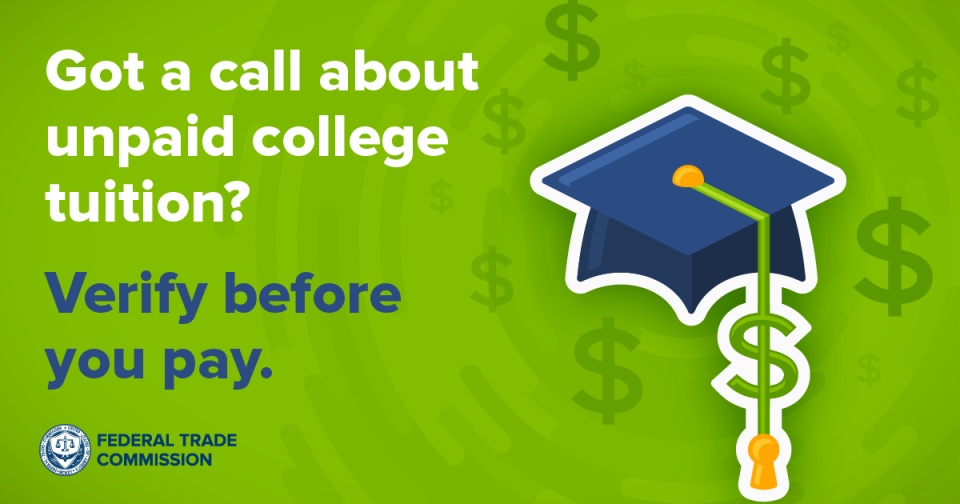For college students and parents, paying tuition is often at the top of the to-do list each semester. Imagine getting a call from someone who supposedly works at your school, saying you haven’t paid the bill. They threaten to drop your classes unless you send money right away. The call might raise alarm bells, but slow down — you might end up paying a scammer instead of the real tuition and fees.
Scammers pretend to be from places like a school’s financial aid or bursar’s office. They might call and say financial aid fell through and that you or your child can’t start classes until you pay the full balance right away (not true). Or that school transcripts are on hold until you pay up (also not true). A school won’t call and scare you into paying them over the phone — but a scammer will.
If you get a call like this, don’t panic. Instead:
- Resist the pressure to act quickly. If someone calls and demands that you give them your bank or credit card information immediately, don’t do it. That’s a scam. And only scammers demand payment with crypto, a wire transfer service like Western Union or MoneyGram, a payment app, or a gift card.
- Don’t trust your caller ID. Scammers fake caller ID numbers — sometimes even “spoofing” the first six digits to make it look like the call came from on-campus. Block unwanted calls.
- Check it out. Most schools use secure student portals to post your bill and let you pay safely. Check any tuition balance there first. Or call the financial aid or billing office directly using a number you know is legit. They’ll help you verify any outstanding balances and when you need to pay.
If you get a call like this, chances are, you’re not the only one. Share this blog post to spread the word and help others spot and avoid the scam. Then, tell the FTC at ReportFraud.ftc.gov.

